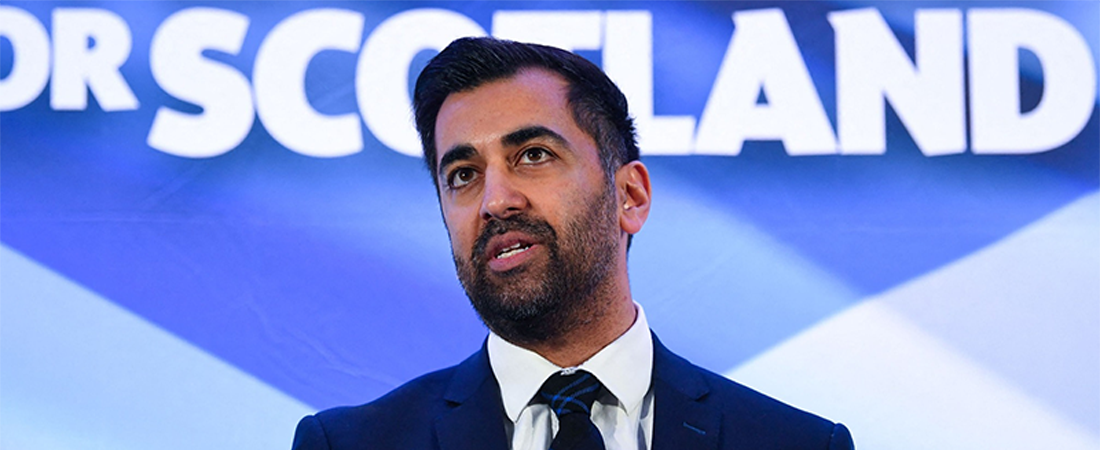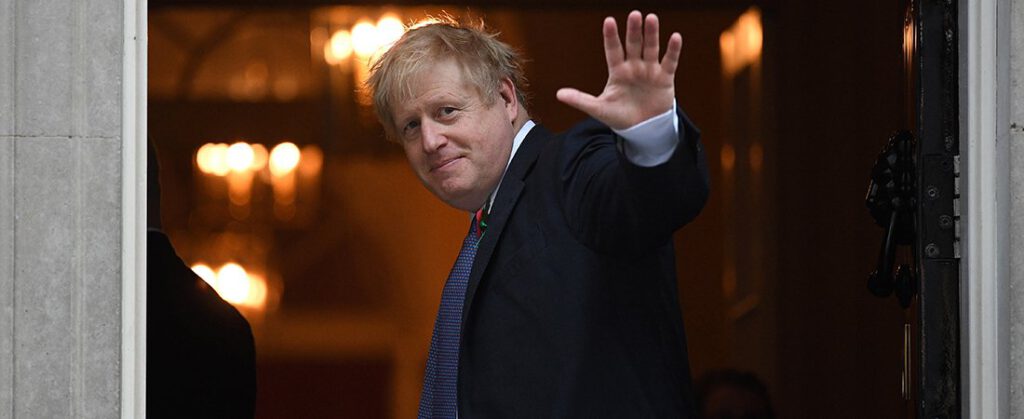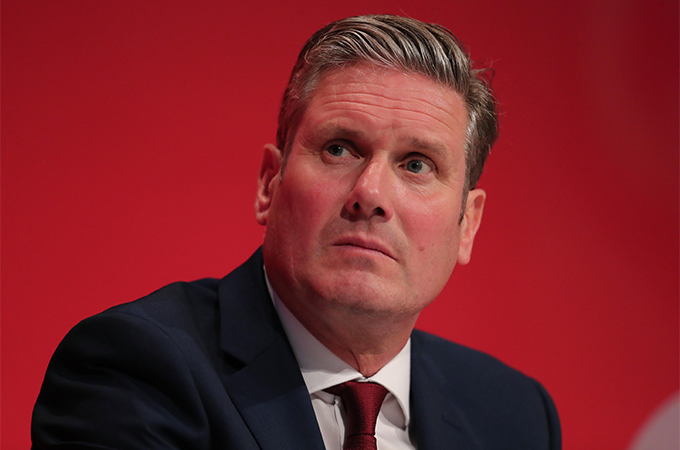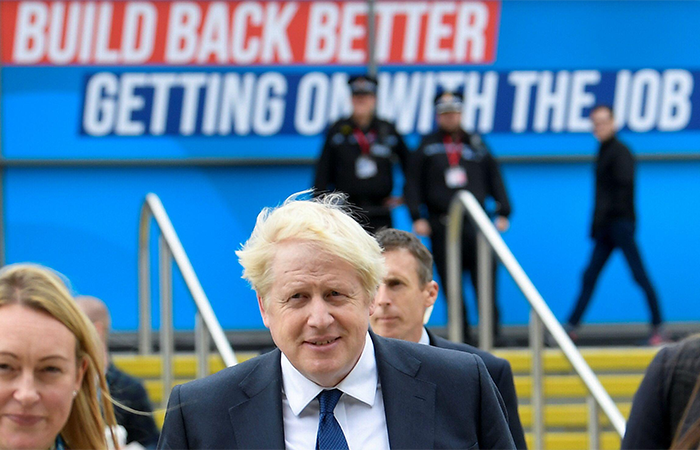This week, Scotland’s First Minister, Humza Yousaf, commemorates his first 100 days in office. Celebrations may not entirely be in order, however, as his term continues to be dogged by a myriad of issues. He is leading the party through one of the most dramatic periods that Scottish politics has seen, clouded by high profile arrests – including his predecessor Nicola Sturgeon – and the ongoing investigation into the party’s finances.
You would be forgiven for feeling some sympathy towards Yousaf for inheriting a tricky in-tray.
However, low poll ratings, relentless policy U-turns, and continued criticism for NHS Scotland waiting times have done little to inspire confidence in his leadership, particularly given his previous responsibility over the health brief. Yousaf is known for having a sunny and optimistic disposition, but there is no denying that he has struggled to turn the tide on the mood that surrounds the party.
His term thus far can be defined mainly by his survival – it might not have been pretty, but he is still in the job. This in itself could be viewed as an achievement given the circumstances but beyond the bread-and-butter issues of the party, he continues to struggle to set himself apart from Sturgeon with voters noting that, other than independence, no one really knows what he stands for.
To his credit, he is said to have maintained good relations with MSPs and MPs, a saving grace for him. Although, there are some significant issues emerging that need to be carefully managed. Earlier this week, the SNP’s Deputy Westminster Leader, and MP for Paisley and Renfrewshire, Mhairi Black, became the sixth SNP MP to announce that they will not run in the next election, labelling the Westminster environment “outdated, sexist and toxic”. Rumour has it that Yousaf is making inroads to more closely align himself to the SNP leader in Westminster, Stephen Flynn, who is said to be building a strong base of support, to foster better relations between the party in Holyrood and Westminster.
Unfortunately for Yousaf, you don’t get a second chance at a first impression and there may be people who had made up their mind about him. While an argument can be made for a grace period, Yousaf is running out of time. He needs to shift the political and media narrative away from day-to-day firefighting and start building confidence in a strategy for the party and for the country. As time goes on, it begs the question, does Yousaf have what it takes to emerge from this Scottish political quagmire and get on the front foot to win back trust and inspire confidence in his leadership and his vision?
Alongside faltering support for the SNP and its mission, Yousaf faces the issue of Labour and its increasing popularity. Although support for independence remains strong, polling from More in Common UK has found that concern for issues such as heating, housing, and overall cost of living, outweigh the importance Scottish people place on achieving Scottish independence.
So, despite the strength of independence being strong amongst voters, the SNP needs to develop a clear and cohesive strategy that pays due attention to the concerns of the electorate whilst making the case for independence and why it’s important to pursue now. If it can’t marry these two things, the SNP’s message will fail to cut through.
Yousaf has already faced criticism for his approach to independence following the party’s independence convention in Dundee last month. Unfortunately, his plan largely fell flat. He pledged to embark on a general election campaign on the basis that a vote for the SNP is a vote for independence and if the party wins a majority of seats (not votes) it will use this to re-open discussions with Westminster about a second referendum, departing from Sturgeon’s de facto referendum proposal. Onlookers, while they praised his treatment of a heckler, were left feeling confused; why the urgency to hurtle towards independence when there are more pressing, current issues? As a result, the exercise was branded by many as a waste of time and out of touch with the reality of people’s priorities.
Scotland will become an increasingly intense battleground over the next few months as Labour and the SNP fight for much needed votes ahead of the upcoming election. The idea of a Labour government in Westminster is likely to sound alarm bells for the SNP, who may fear there will be less urgency for independence. However, when Labour talks about Scotland it tends to focus on the constitutional grounds of the debate, which could play into the SNP’s hands as the SNP is more comfortable debating matters of the constitution. This route could, therefore, open the door to enhanced devolution and make the case for independence easier to reach.
Despite the current polls, and the ongoing chaos that engulfs the SNP, Labour needs to avoid becoming complacent. Labour must concentrate on strengthening its roots in Scotland and present itself as the only viable option for progress on the issues Scottish people hold dear.
Despite all of this, it doesn’t spell disaster yet for the SNP. The strength of feeling towards culture and patriotism in Scotland coupled with resistance to Westminster rule cannot be underestimated. There’s no doubt that it will be a long road ahead for the First Minister but if he can refocus SNP strategy and reunite some of the broken inner factions, there is hope.





